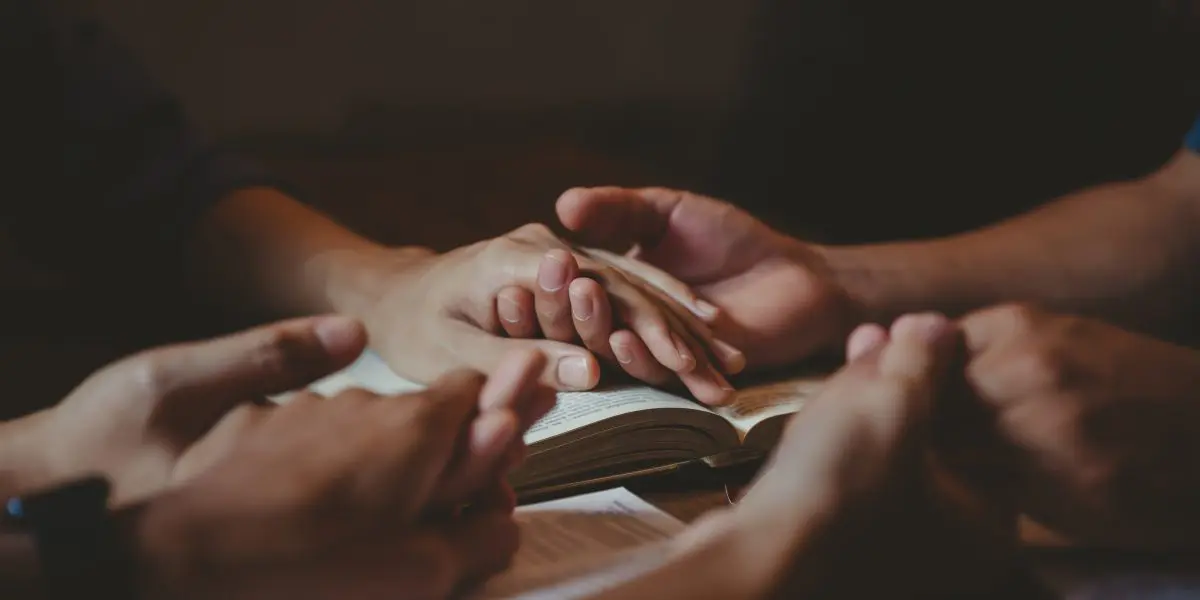
in this article
- Introduction
- Examples of Agreements
- The Importance and Benefits of Agreements
- Further Considerations for Making Agreements
- Ritualizing Agreements
- Conclusion
Are you 18 or older?
Please confirm that your are 18 years of age or older.
You are not allowed to access the page.

Disclaimer: The views and opinions expressed in this article are those of the authors and do not necessarily reflect the official policy or position of Chemical Collective or any associated parties.
Things can get pretty wild in a psychedelic experience.
Boundaries dissolve, ways of thinking morph, and our sense of self can radically change.
It is no wonder people have anticipation anxiety about their experiences. Understandably, people worry about what will happen or what they will do. Will I do something unsafe? Or something that I will regret later?
This is where agreements come in.
Agreements can help to bring structure to a session, create an emotionally safe space, and help to reduce feelings of worry or anxiety.
This all helps to set up a supportive container for safe and beneficial psychedelic sessions.
So, what are agreements? What are some examples? How can they be created and implemented?
I got you.
In this blog post, I will be giving some examples, looking at their benefits, and offering some considerations for making them. I will also look at ways to ritualise them to help further cement them to create a solid structure around the experience.
My intention is to introduce and explore this topic to help you use agreements in your own psychedelic sessions. Whether you are a participant or a tripsitter, this will help you in creating spaces and containers conducive to beneficial psychedelic experiences.

Agreements, which can also be referred to as ground rules, serve as clear boundaries that help create a safe and structured environment for a psychedelic session.
I think the easiest way of illustrating what they are and how they can be helpful is to give you some examples. So to start, I will offer a few examples of agreements and for each one, I will also add a little on why they are helpful.
This means no kind of physical touch of any kind of sexual nature. This agreement is straightforward and essential for maintaining personal and physical boundaries. This agreement will extend to all participants and facilitators present for the session and ensures that the session stays focused on personal growth and healing.
By explicitly stating that zero sexual contact is permitted during the session, participants can feel safe and respected.
Although it may seem obvious, explicitly stating this agreement helps to prevent any potential harm that might arise from intense emotional experiences. This includes violent or physically harmful behaviour to all people present in the room and any breakable items in the room.
This is important because it could be that someone has a strong burst of emotion and wants to express it. Because the agreement prevents this from being directed to people or damaging items and personal property, another outlet may be found. If anger comes up, it could then be expressed in a safe way. For example, by punching pillows. This allows for an expression of emotion without being physically harmful.
By agreeing to refrain from physically harmful behaviour, participants commit to creating a safe space for themselves and others.
Participants agree that they will not leave the designated session space until the session is over. This agreement is important primarily from a safety perspective. It eliminates any complications that may arise from heading into public or outside areas, such as encounters with other people or environmental concerns such as walking down stairs or dealing with traffic.
In some cases, this agreement might be altered so that no participant will leave the space without the permission, or accompaniment, of a sober tripsitter.
By agreeing not to leave the designated space during the session, participants ensure their safety and prevent any disruptions that could arise from wandering off.
This means not making final decisions about future arrangements to be carried out beyond the session. This agreement is crucial for preventing any impulsive decisions that may arise during the psychedelic experience. Once again, this agreement will extend to all participants and facilitators during the experience.
Decisions about actions after the session are best considered and finalised during the integration process, after the session, and in collaboration with our sober mind.
By agreeing not to make any commitments or agreements about future actions until after the session, participants can rest assured that they won’t make any irreversible and regrettable decisions whilst they are high, and ensure that decisions are made with clarity and intention.
In today’s digital age, it is important to consider boundaries around the use of technology during a psychedelic session. By agreeing not to take any photos or videos without explicit permission, participants can maintain their privacy and feel more comfortable expressing themselves freely.
In some cases, participants may agree that recordings can be made but not shared with anyone who was not present, or without the express permission of those involved.
Other examples of agreements around the use of technology might include: not using a phone, or staying offline or in airplane mode for the duration of the session.

Now that we have looked at some practical examples of agreements, I would like to further explore their importance and underline the benefits they can bring to a psychedelic session.
Agreements can be especially important in psychedelic sessions because in these states we can feel incredibly sensitive and emotionally vulnerable. Intense emotions and sensations may come up. And in these states, it is important for people to be able to fully feel what comes up, and feel safe to do so.
By bringing structure and establishing clear boundaries, agreements help to create an emotionally safe space.
Not only is this important from the aspect of creating an emotionally safe space, but also a space of physical safety. Having this sense of safety helps to bring about the best mindset and emotional state to enter an experience, and therefore helps create the conditions to have the most beneficial experience possible.
Uncertainty and apprehension are common emotions before embarking on a psychedelic experience. Having agreements in place can help alleviate these fears by addressing potential concerns beforehand. By clarifying what actions are allowed and what are not, it helps to reduce fear and make people feel more comfortable and prepared for their experience.
During a psychedelic experience, communication can become difficult and perceptions can get weird. We can also lose our ability for clear and logical thinking, and in some cases enter states of confusion.
Clear agreements can help bring about clarity by guiding participants through the experience and minimizing confusion. With clear ground rules around certain behaviours that are established upfront, everyone can navigate the experience with greater ease.
Someone has a desire to take out their phone and send a message to a friend? Or go for a walk outside? Or throw something out the window? Agreements can offer clear boundaries and help bring clarity and ease to the navigation of the experience.
A member of my community had the agreement with himself that he would go to the toilet when he first noticed the urge to pee. Although very basic and straightforward, this clear agreement helped to remove indecision and create a smoother navigation of his experience.

When preparing for psychedelic sessions, the process of outlining and making agreements is worth our consideration. Here are a few things to bear in mind when making agreements.
Agreements need to be made before the session starts. They should not be changed, altered or amended during the session itself. This is because agreements mark firm boundaries, not things to be changed on a whim. Knowing this, participants can enter the session with a sense of security and clarity, enabling them to fully immerse themselves in the experience without apprehension.
Ideally, they are set out in good time and agreed upon by everyone involved, a minimum of one week before the session. However, there is no harm in having them set out even earlier, say one month or more before. Some facilitators or tripsitter will have a series of standard agreements they use for all clients, so these can be laid out as soon as preparation begins.
All agreements should then be revisited closer to the session, to remind everyone and have it refreshed in their minds. This can be done the day before, or directly before the session itself. This is as simple as one person reading them aloud to all participants and facilitators.
Once agreements have been finalised and the session has started, they should not be changed. However, before they have been finalised, flexibility can be used in creating them. Each participant or group brings their own unique set of needs, preferences, and boundaries. As such, adjusting agreements based on individual or group can help to create a more personalised and supportive container for the session.
For example, if the music is a concern in a group session and there is no designated quiet room available, there may be an agreement that everyone has the power of veto to skip a track. So if anyone, for whatever reason, wants to skip the music track being played, it will be skipped.
They can simply say ‘let’s skip this track’. And it is skipped. There is no discussion about that. There is no ‘can you try listening a bit longer?’ or anything like that. It is just skipped. It has been agreed by everyone in advance, and that agreement can be referred back to if needed.
This is just one example, but I hope shows you how participants can collaboratively create agreements to accommodate varying comfort levels and preferences, ensuring that everyone feels respected and supported throughout the session.
Documenting agreements can be helpful to make them more concrete and firm in the minds of all participants. By keeping a record of the agreements made, participants can refer back to them, reducing the likelihood of misunderstandings or disputes. This is also useful for revisiting them before the session. Documenting agreements can be done by simply writing them down on paper or in a digital document.

In addition to establishing and documenting agreements, it can be beneficial to have some kind of ritual around them to emphasize their importance and help further set them in stone. Rituals may vary in formality and can be tailored to suit the preferences of the participants. Here are a few ways in which agreements can be ritualized.
Taking a moment to verbally confirm the agreements can be a simple way to ritualize them. Participants can look each other in the eye and confirm their commitment to upholding the agreed-upon rules.
This can be done by explicitly stating all agreements before the session and after each one asking for confirmation. For example:
‘The first ground rule is that there will be no sexual contact of any kind. Do you agree?’
‘Yes, I agree’
Physical gestures, such as handshakes or raising hands in agreement, can further solidify the commitment. For example, after stating aloud all the agreements, a handshake may be made to confirm that they have been understood and are agreed upon. Or if in a group, a confirmation can be made by a raising of hands. These gestures serve as visible symbols of cooperation.
As mentioned before, it may be useful to have written documentation of the agreements. This document might also be signed by participants as a further mark of commitment. Having a physical and tangible record of signed agreements can help hold everyone accountable.
In conclusion, making sure that participants feel safe and supported is an essential preparation consideration for setting up any psychedelic experience. Agreements help create an atmosphere of trust and reassurance, assuring participants that they are in a controlled and supportive environment. By explicitly defining boundaries and expectations, participants can more fully immerse themselves in the experience without distractions or concerns about safety. Even amidst the intensity of the experience, knowing that boundaries will be respected and upheld can provide a sense of comfort and this can help to set people up for safe and beneficial experiences.
Whether in a therapeutic setting or among friends, agreements help create a container that is conducive to deep introspection and personal growth. These structured frameworks help create safe, supportive environments for transformative experiences. I invite you to reflect on your intentions and consider implementing agreements in your sessions. Share your thoughts in the comments below and check back for more psychedelic content.
Stay safe, and best of luck out there.
John Robertson | Community Blogger at Chemical Collective | mapsofthemind.com
John is one of our community bloggers here at Chemical Collective. If you’re interested in joining our blogging team and getting paid to write about subjects you’re passionate about, please reach out to David via email at blog@chemical-collective.com

Welcome to Chemical Collective.
Create an account to earn 200 welcome points.
Already have an account? Sign in


Check out our Community Blog and get involved with the conversation. You will be awarded 50 x ChemCoins for each comment up to a limit of 250 total ChemCoins.


Have you purchased any of our products? Reviews and reports are so important to the community. Share your honest opinion, and we’ll reward you with 50 ChemCoins for each review!


Every time you complete an order with us, you’ll be awarded ChemCoins for each Euro spent.
Welcome to Chemical Collective.
Create an account to earn 200 welcome points.
Already have an account? Sign in

Earn commission every time someone makes a purchase through your link.
When you become an affiliate, you will be allocated a unique link to share with your friends, followers, subscribers, or Aunt Susan.
You can choose to payout the commission earned once per month, or save it up to receive on a rainy day! Commission earned is 5% of the total order value per referral.
Contact us to join the Chemical Collective family and become an affiliate.
share your toughts
Join the Conversation.
Great article!
Absolutely right!
This is a great article. I just wanted to add if you have a much higher tolerance to psychedelics than the person you’re tripping with be completely up-front. If you take the same dose and explain to them higher their gonna be than you or take a higher dose than your partner to try and have more even trips
Couldnt have said it better myself